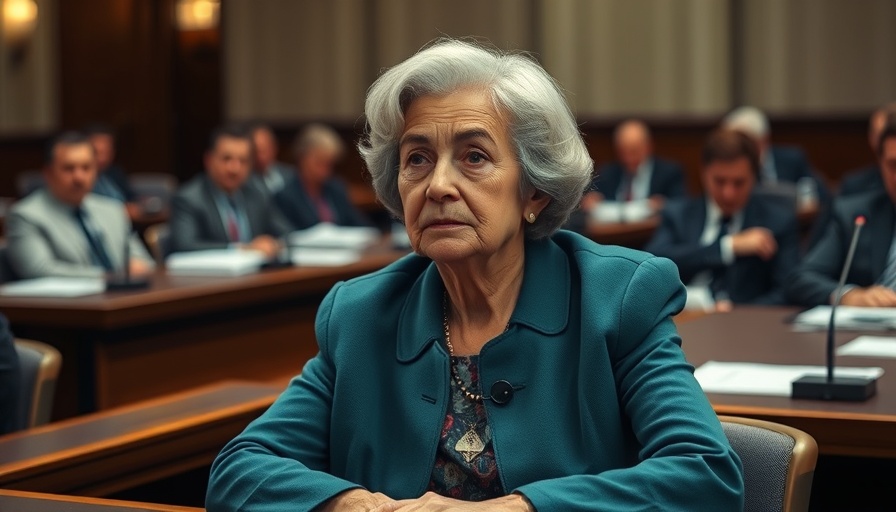
Republican Reaction to Budget Cuts Poses Ethical Questions
In a heated legislative atmosphere, House Republicans have taken a strong stance against Democrats describing the consequences of President Trump’s proposed budget, officially named the “One Big, Beautiful Bill Act.” Chairwoman Virginia Foxx (R-NC) was particularly vocal during a recent rules committee meeting, pushing back against what she termed "extreme comments" about the bill's implications. She expressed concern about the language used by Democrats, which she believes incites unnecessary fear among the public.
The proposed budget not only aims to slash $800 billion from Medicaid but is also expected to lead to an estimated 8.6 to 13.7 million Americans losing their healthcare coverage. Furthermore, it would implement significant cuts to Medicare, while simultaneously adding a staggering $3 trillion to the federal deficit. Such actions, Foxx suggested, are being unfairly portrayed by opponents, who utilize fierce terminology like ‘cut,’ ‘rip,’ ‘gut,’ and ‘kill’ to evoke a visceral response.
A Different Perspective on the Budget’s Impact
Despite Foxx's defense, analysts and commentators have voiced stark concerns about the bill's ramifications. MSNBC columnist Michael A. Cohen describes the legislation as “genuinely terrifying,” and emphasizes that it represents a monumental transfer of wealth from impoverished communities to the richest sectors of American society. This sentiment mirrors warnings from organizations like the Center for American Progress (CAP), which highlights that these budget cuts would endure the largest reductions in Medicaid and food assistance in United States history, potentially resulting in millions losing their health insurance and access to nutrition.
The ethical implications of such sweeping changes raise questions about the state of America's commitment to socioeconomic equality and the well-being of its most vulnerable citizens. How will these measures affect children relying on food assistance programs and families dependent on Medicaid for healthcare?
Historical Context and Background
The debate over healthcare funding and social safety nets is not new. Historical cuts to welfare have frequently sparked significant public outcry, with each decision forcing lawmakers to reckon with the broad impacts of austerity measures. The current economic climate, characterized by pronounced wealth inequality, amplifies the urgency of this discussion. The proposed budget aligns with a broader narrative of prioritizing tax breaks for the wealthy while neglecting essential public services. This brings to light an essential question: do policymakers prioritize profiting over protecting?
Future Predictions: What Lies Ahead?
Should this budget be enacted, the implications could ripple through the American healthcare and social systems. Advocates warn that preventable health issues may escalate, resulting in increased mortality rates among marginalized communities. Logically, if access to healthcare is hindered, it presupposes a decline in public health outcomes. What legislative measures will be taken next? This question hangs over the heads of many as further discussions about fiscal responsibilities continue.
Calls for Action and Civic Responsibility
Engagement in the political process is crucial. Civil rights and immigration attorneys are encouraged to participate in discourse around healthcare and budget policies. Understanding the implications of this budget’s potential passage is vital—not just for those in the legal field, but for all Americans concerned with justice and equity. By voicing concerns, partnering with advocacy groups, and promoting awareness around these campaigns, citizens can mobilize against policies that may adversely reshape the social fabric.
In conclusion, the ramifications of such legislative decisions reach far beyond statistical figures and budget sheets. Each dollar cut reflects lives impacted and communities struggling. Engaging thoughtfully with these issues is essential, ensuring that civic voices are heard in the halls of power.
 Add Row
Add Row  Add
Add 

 Add Row
Add Row  Add Element
Add Element 




Write A Comment